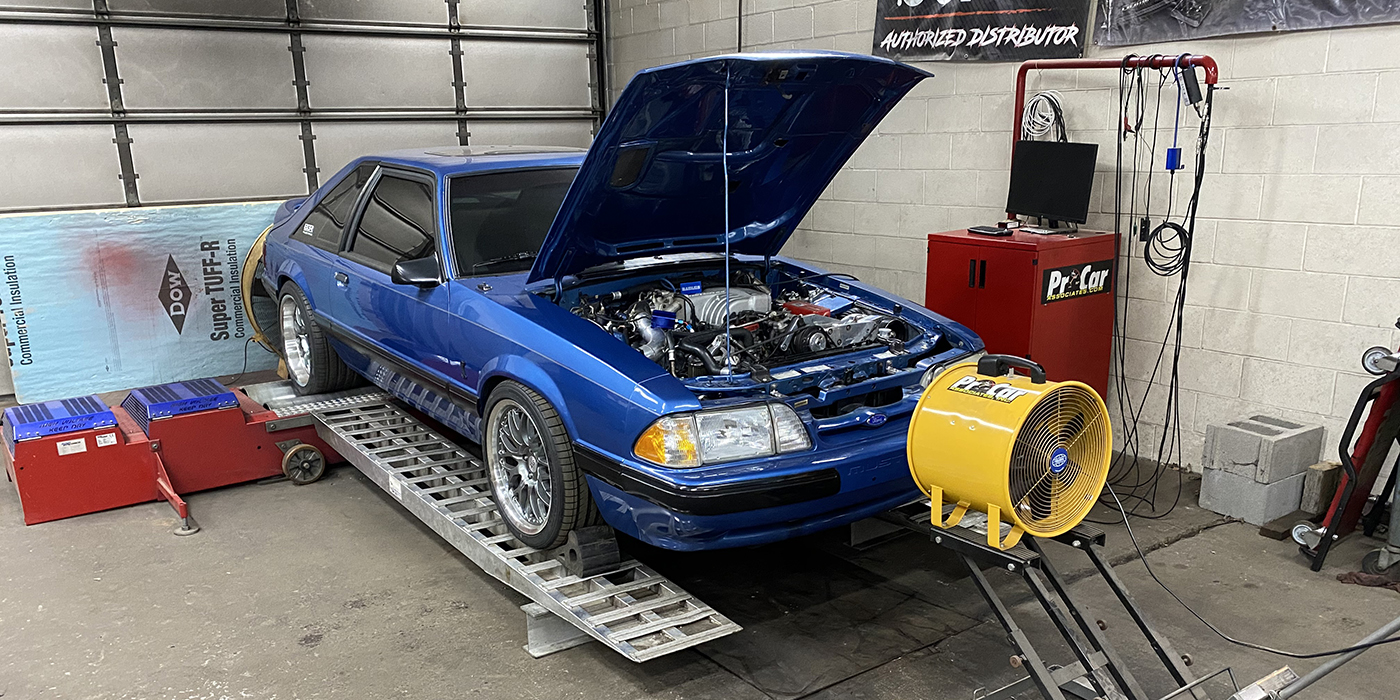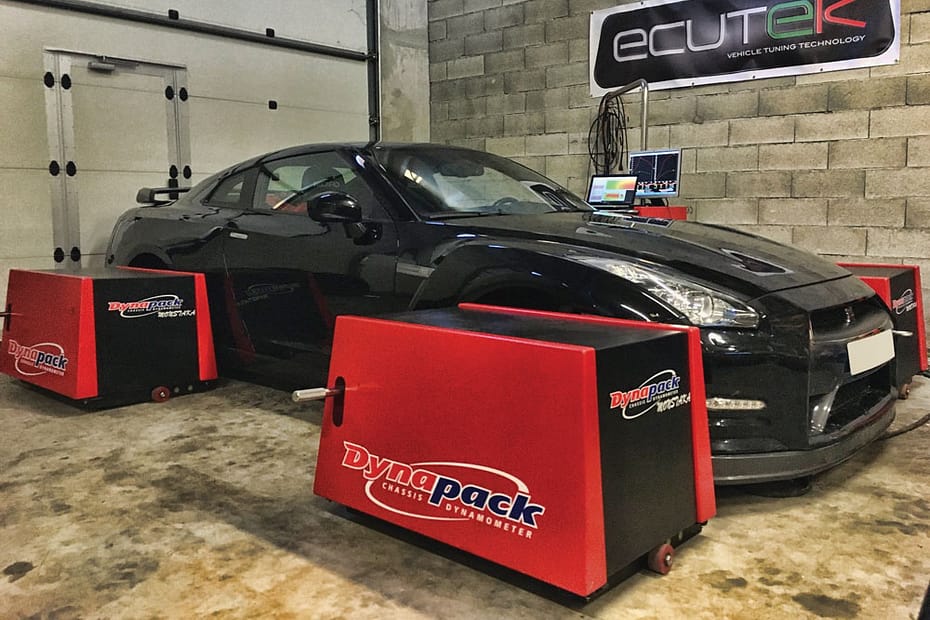A dyno typically costs between $15,000 to $50,000, depending on the brand and features. Investing in a dyno can be a significant but valuable expense for performance enthusiasts and automotive professionals alike.
Dyno machines are essential tools for measuring engine power and tuning for optimal performance. Whether you are a racing team looking to fine-tune vehicle performance or an auto shop wanting to offer dyno services to customers, having a dyno can set you apart in the industry.
We will explore the factors that influence dyno costs, the benefits of owning a dyno, and tips for choosing the right dyno for your needs.

Credit: www.performanceracing.com
Factors Affecting Dyno Cost
When it comes to purchasing a dyno, one of the most important factors to consider is the cost. Various elements can affect the overall price of a dyno, making it crucial to understand the factors that contribute to its cost. In this article, we will delve into the key factors that determine how much a dyno costs.
Type Of Dyno
One of the primary factors that affect the price of a dyno is the type of dyno itself. There are several different types of dynos available in the market, each with its own set of features and capabilities. The most commonly used dynos include:
- Engine Dyno: This type of dyno focuses on measuring the power and torque output of an engine. It is an ideal choice for testing and tuning engines, making it popular among automotive enthusiasts and performance shops.
- Chassis Dyno: Unlike engine dynos, chassis dynos measure the power and torque output of the entire vehicle. They simulate real-world driving conditions and are widely used in automotive workshops and research facilities.
- Inertia Dyno: Inertia dynos utilize a rotating drum to measure the power and torque of an engine. They are relatively simpler and more affordable compared to load-bearing dynos.
- Load-Bearing Dyno: Load-bearing dynos, also known as eddy current or water brake dynos, provide a more comprehensive testing solution. They can apply variable loads to the engine, mimicking real-world scenarios more accurately. However, they tend to be more expensive due to their advanced capabilities.
Additional Features
Another aspect that affects the cost of a dyno is the presence of additional features and accessories. Some of the most common features that can increase the price of a dyno include:
- Integrated Data Acquisition: Advanced dynos often come equipped with built-in data acquisition systems that allow for precise measurements and analysis of various engine parameters. These systems can significantly enhance the testing process but can also add to the overall cost.
- Control Software: Dyno control software plays a vital role in operating and managing the dyno. Sophisticated software that offers advanced control options and data visualization capabilities can influence the final price.
- Dyno Cell Design: The design of the dyno cell can vary depending on the application and user requirements. Factors such as noise reduction, ventilation systems, and safety features can impact the overall cost of the dyno.
- Compatibility with Accessories: Some dynos offer compatibility with additional accessories such as exhaust gas analyzers, fuel flow meters, and environmental chambers. These accessories can provide valuable insights during testing, but they may also come at an added cost.
It is worth mentioning that, in addition to the type of dyno and the presence of additional features, the reputation and brand of the manufacturer can also influence the cost. Well-established brands with a strong track record tend to have higher-priced dynos due to their superior quality and reliability.
Cost Breakdown
When considering the cost of a dyno, it’s essential to break it down into three main categories: Initial Purchase Cost, Installation and Setup Cost, and Ongoing Maintenance Cost.
Initial Purchase Cost
- Basic dynos start at $15,000
- Advanced models can range up to $100,000
Installation And Setup Cost
Installation and setup can add an additional $5,000 to $10,000 to the total expenses.
Ongoing Maintenance Cost
Maintenance typically costs around $1,000 to $5,000 annually for routine check-ups and repairs.
Considerations Before Purchasing
Prior to purchasing a dynamometer, consider the upfront cost and ongoing expenses. Assess the size and type of dyno that suits your requirements, and factor in installation, maintenance, and calibration costs. Additionally, weigh the benefits of purchasing new or used equipment and the potential return on investment.
Intended Use
Determine the primary goal of the dyno to select the appropriate type.
Space And Power Requirements
Plan for the necessary area and power capacity for the dyno installation.
Support And Training
Ensure availability of adequate support and training for efficient use.

Credit: www.enginebuildermag.com
Comparing Dyno Options
Dyno options vary in cost, depending on the features and capabilities. Get insights into the pricing details of different dynos to find the one that best suits your needs and budget.
Mainstream Dyno Manufacturers
When it comes to dyno options, there are a range of mainstream dyno manufacturers to choose from. These reputable companies have been in the industry for years, providing reliable and high-quality dyno solutions. Let’s take a closer look at some of the top mainstream dyno manufacturers:
- Ford Performance: Known for their performance-oriented vehicles, Ford Performance offers a range of dyno options suitable for both professional and amateur use. Their dyno systems are designed to measure engine performance accurately and provide valuable data for performance tuning.
- Dynojet Research: With a strong reputation in the automotive industry, Dynojet Research offers a wide range of dyno solutions. Their Dynojet Dynamometers are known for their accuracy and ease of use. These dynos can be found in many professional tuning shops and are popular among performance enthusiasts.
- Maha: Maha is a German company that specializes in manufacturing high-quality dyno systems. Their dynos are known for their precision and reliability, making them a popular choice among professionals.
- Mustang Dynamometer: Mustang Dynamometer is a well-established dyno manufacturer that offers a range of dyno options for various applications. From chassis dynos to engine dynos, they provide solutions for both automotive and industrial applications.
Aftermarket Dyno Solutions
If you’re looking for more affordable options or specialized dyno solutions, aftermarket manufacturers are worth considering. Although they may not have the same brand recognition as mainstream manufacturers, aftermarket dyno solutions can still provide accurate and reliable performance measurements. Here are a few popular aftermarket dyno manufacturers:
- SuperFlow: SuperFlow is a well-known name in the aftermarket dyno market. They offer a range of dynamometers that are known for their durability and accuracy. Their dynos are often used by performance shops and individual enthusiasts.
- Land and Sea: Land and Sea is a reputable aftermarket dyno manufacturer that focuses on marine performance testing. They offer specialized dynamometers for measuring the performance of boats and personal watercraft.
- Power Test: Power Test is known for its wide range of dyno solutions for various industries. From automotive to agriculture, they provide dynos that can handle different types of applications.
When comparing dyno options, it’s important to consider factors such as accuracy, ease of use, and price. Mainstream dyno manufacturers often come with a higher price tag but offer a well-established reputation and reliable performance. Aftermarket dyno solutions, on the other hand, can be more affordable but may require more research to find the right fit for your specific needs.
Making An Informed Decision
When it comes to purchasing a dyno, it’s crucial to make an informed decision. A dynamometer, or dyno, is a significant investment for anyone involved in performance tuning, engine testing, or vehicle development. To ensure you make the right choice, consider various factors such as budget allocation and long-term value.
Budget Allocation
Setting a clear budget is the first step before purchasing a dynamometer. Consider your financial capabilities and determine how much you are willing to invest in this technology. Take into account not only the initial purchase cost but also potential ongoing expenses such as maintenance, calibration, and any necessary upgrades.
Long-term Value
When evaluating the cost of a dyno, it’s essential to consider the long-term value it will provide. Look beyond the initial price tag and assess the potential return on investment. A high-quality dyno can enhance your testing capabilities, improve productivity, and contribute to the development of more reliable and efficient vehicles, resulting in long-term cost savings and enhanced reputation.

Credit: www.dynojet.com
Frequently Asked Questions For How Much Does A Dyno Cost
How Much Does It Cost To Dyno A Car?
The cost to dyno a car typically ranges from $75 to $200 depending on the location and services offered.
Is Dyno Tuning Worth It?
Dyno tuning is worth it for optimizing engine performance, improving fuel efficiency, and diagnosing issues efficiently.
How Much Does Engine Dynamometer Cost?
The cost of an engine dynamometer varies depending on the brand, features, and size. Prices typically range from a few thousand dollars to tens of thousands of dollars. The best way to know the exact cost is to contact suppliers directly and get quotes tailored to your specific needs.
How Long Does A Dyno Tune Last?
A dyno tune typically lasts for 1 to 2 years, but it depends on driving habits and vehicle modifications. Regular maintenance and adjustments may be needed to maintain optimal performance.
Conclusion
To wrap up, understanding the cost of a dyno is essential before planning any automotive performance project. By considering factors such as the type of dyno, location, and additional services, you can budget accordingly and make informed decisions. Remember, investing in a dyno can bring long-term benefits by optimizing engine performance and enhancing overall vehicle performance.
Stay informed and consult with professionals to get accurate cost estimates for your specific needs. Let the dyno journey begin!
